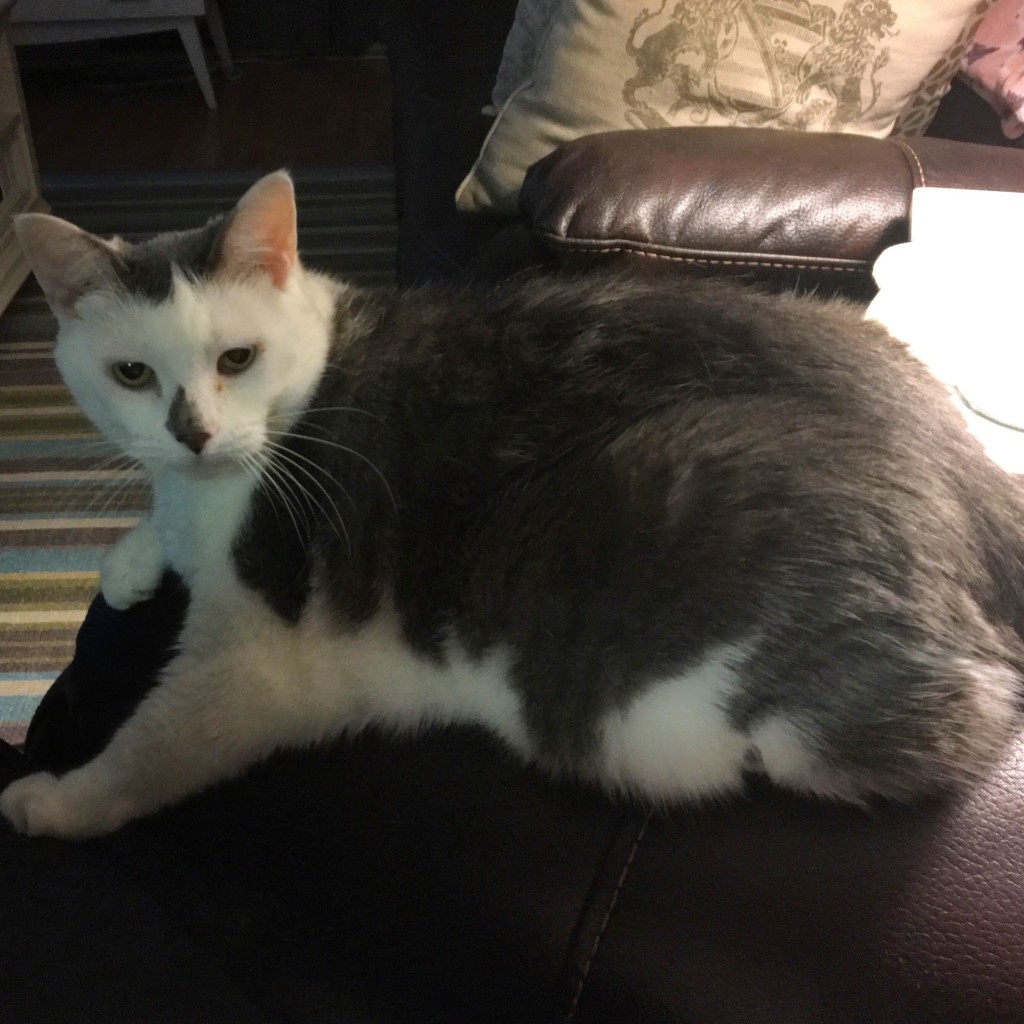 Earlier this year, Mount Laurel police charged the woman with stalking and harassment.
Earlier this year, Mount Laurel police charged the woman with stalking and harassment.
They claim to have caught the suspect smearing dog poop on a car last October, per the news.
Indeed, the cops caught her in the act in the middle of the night, per the media. ‘Twas the night before Mischief Night.
Previously, the owners had filed nine reports that someone had spread dog poop on and damaged their vehicles.
Score: Cats 1, Dogs 0
Harassment, N.J.S.A. 2c:33-4
Petty Disorderly Persons Offense
Under New Jersey law, a person commits a petty disorderly persons offense if, with purpose to harass another, the person
- Makes, or causes to be made, a communication or communications anonymously or at extremely inconvenient hours, or in offensively coarse language, or any other manner likely to cause annoyance or alarm;
- Subjects another to striking, kicking, shoving, or other offensive touching, or threatens to do so; or
- Engages in any other course of alarming conduct or of repeatedly committed acts with purpose to alarm or seriously annoy such other person.
Each of these three subsections defines an offense in its own right. For example, subsections (a) and (c) of the harassment statute criminalize private annoyances that are not entitled to constitutional protection. Although speech is at issue in subsection (a), the prohibited purpose of the speech makes its punishment constitutional. Hence, these harassment statute subsections deter acting toward others with a purpose to harass. Additionally, the purpose to harass may be inferred from the evidence presented based on common sense and experience.1
Indeed, the Legislature enacted the harassment statute to fill gaps in the Code of Criminal Justice. For example, Disorderly Conduct is limited to disturbance of some general impact, not on a particular individual. Furthermore, the harassment statute covers provisions that were excluded by the Assault statute.2
Fourth Degree Crime
Determining whether a person has commited a fourth degree crime under this section involves these questions:
- When the alleged conduct occurred, was the person serving a term of imprisonment, on parole, or on probation?
- Was this status the result of a conviction of any indictable offense under the laws of this State, any other state or the United States?
First Amendment
The right to freedom of speech may provide a defense in some instances where a person faces harassment charges. Indeed, the First Amendment protects individuals from government censorship of speech or expressive conduct. In general, it prohibits laws against the communication in the marketplace of ideas. Thus, the government cannot prohibit what a person says. But the government can impose reasonable regulations as to when, where, and how individuals communicate. Nevertheless, these time, place, and manner regulations must have no reference to the content of the regulated speech.3
Moreover, freedom of speech excludes obscenity, defamation, and insulting or fighting words. Indeed, these forms of communication inflict injury or tend to incite an immediate breach of the peace. Consequently, such utterances are no essential part of any exposition of ideas. Furthermore, they and are of such slight social value as a step to truth that any benefit that may be derived from them is clearly outweighed by the social interest in order and morality. Indeed, epithets or personal abuse is not in any proper sense communication of information or opinion safeguarded by the Constitution. Therefore, its punishment as a criminal act would raise no question under that instrument.4
In this day and age, modern mainstream society tends to discourage hateful or biased beliefs. Thus, the First Amendment is a contrarian. Indeed, it allows a person to harbor ill will, hatred, or bias toward a specific group or person. Additionally, the First Amendment protects the right to communicate one’s thoughts, no matter how biased, bigoted, hateful, odious, or nasty, without fearing prosecution. But the First Amendment does not allow one to communicate or act on these beliefs in a harassing manner.5
Sentencing Exposure
Fourth Degree Crime
- Fine: Up to $10,000.00;
- Incarceration:
- State Prison: Up to 18 months, or
- County Jail: Up to 364 days as a condition of probation.
- Probation:
- Between 1 year and 5 years,
- Fee of at least $25 per month, and
- Any other reasonable conditions.
Petty Disorderly Persons Offense
- Fine: Up to $500.00;
- Probation:
- Between 1 year and 5 years,
- Fee of at least $25 per month, and
- Any other reasonable conditions.
Additional Penalties
- Restitution: If applicable, and generally not to exceed the victim’s loss unless exceptions involving State taxes apply;
- Supervised release;
- Community service;
- Halfway house or other residential facility in the community, including agencies not operated by the Department of Human Services;
- Imprisonment at night or on weekends with liberty to work or to participate in training or educational programs
- Property forfeiture: If applicable
- Removal from office: If applicable
- Civil penalties: If applicable
- License suspension or revocation: If applicable
Follow
Footnotes
1 State v. Hoffman, 149 N.J. 564 (1997).
2 Ibid.
3 R.A.V. v. City of St. Paul, Minnesota, 505 U.S. 377 (1992).
4 Chaplinsky v. New Hampshire, 315 U.S. 568 (1942).
5 State v. Mortimer, 135 N.J. 517 (1994).